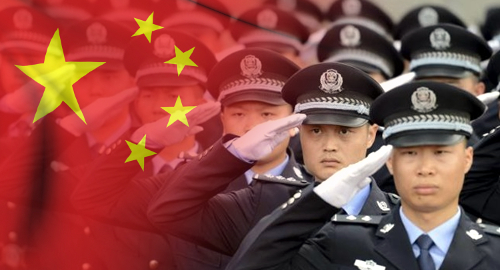 China is ramping up its efforts to combat online gambling, including the creation of an online blacklist and increased scrutiny of financial transactions.
China is ramping up its efforts to combat online gambling, including the creation of an online blacklist and increased scrutiny of financial transactions.
Last week, China’s Ministry of Public Security held a meeting on combatting ‘cross-border gambling’ at which Minister Zhao Kezhi called on officials to investigate “a number of major cases” of internationally-based online gambling operators serving Chinese customers in order to “completely destroy a group of criminal organizations.”
Zhao added that it was “necessary to establish a ‘blacklist’ system for participating in gambling and employees and overseas tourist destinations.” The ministry also seeks to “strengthen the ‘fund chain’ and ‘technical chain’ governance measures and resolutely cut off the channels for the circulation of gambling funds.”
Zhao’s call was followed up Monday by China UnionPay announcing that some of its partners were failing to “take effective measures to curb illegal elements from engaging in illegal trading activities.” While UnionPay’s announcement also mentioned sketchy loan arrangers and other “illegal public merchants,” it reminded its partners that they are barred from doing business with online gambling and online lottery platforms.
UnionPay warned its partners to “standardize the display of transaction information, accurately reflect the names of real merchants and acquirers,” while warning of “legal measures” for unauthorized use of the UnionPay brand.
Pronouncements of this type are often made by Chinese officials, such as the ‘Gambling Prohibition Publicity Month’ announced in January. That effort has reportedly resulted in 22 major gambling disruptions, of which 13 involved online gambling sites.
Interestingly, the Ministry may have felt prompted to issue its latest anti-online statement due to the coronavirus crisis. The government suspended all lottery operations in mid-January to prevent citizens from clustering in retail outlets, imposed severe travel restrictions to Macau casinos and even arrested individuals who defied orders not to congregate in private mahjong games.
In doing so, the government deprived its citizens of their only legally accessible gambling opportunities. As a result, the government may have detected a recent surge in local residents’ efforts to access internationally licensed online gambling operators. Hedge fund manager Jason Ader recently claimed that China’s daily online gambling stats had risen 90% year-on-year during the Lunar New Year holiday period.
